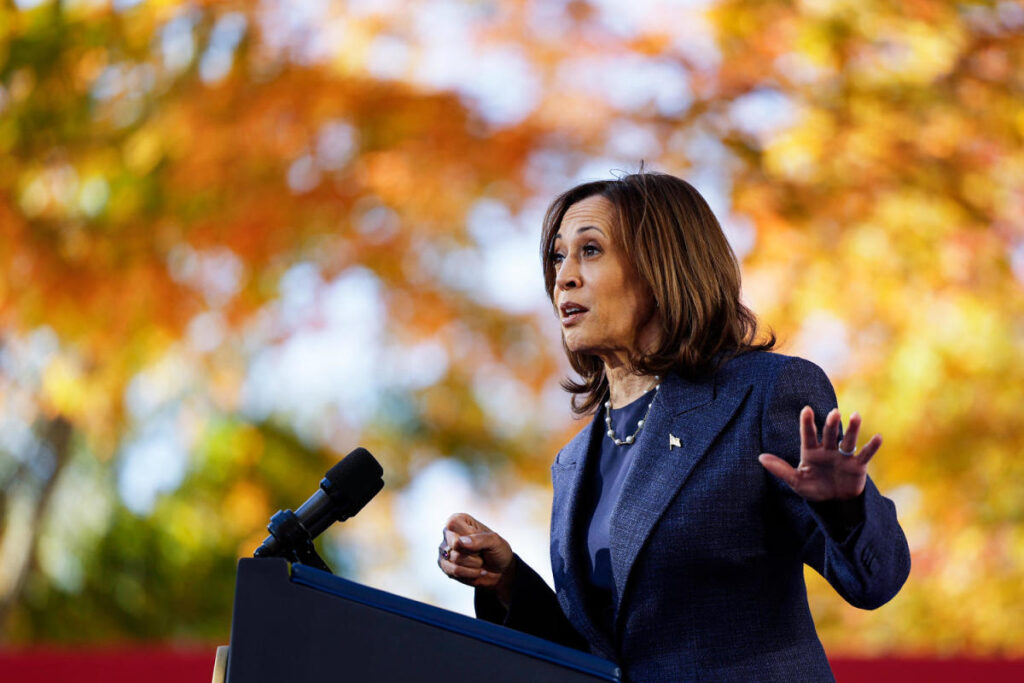Vice President Kamala Harris recently responded to former President Donald Trump’s derogatory comments about her, where he called her a “s—” vice president during a rally in Latrobe, Pennsylvania. Speaking to Rev. Al Sharpton on MSNBC, Harris emphasized that the American people deserve leadership that sets a high standard both nationally and internationally. She criticized Trump for his behavior, asserting that it diminishes the dignity of the office he once held. Harris’s remarks highlighted her commitment to maintaining the integrity of the vice presidency, underscoring that the actions of leaders should reflect the values expected by the public.
During the same rally, Trump launched a series of insults aimed at Harris, urging supporters to express their dissatisfaction with her vice presidency. He claimed that people should tell her, “Kamala, you’re fired,” a statement that encapsulates his tendency to engage in personal attacks rather than discussing policies or issues. Harris countered Trump’s comments by stating he should not be allowed to stand behind the presidential seal again, emphasizing that he has not earned that right due to his behavior and rhetoric. She articulated a sense of determination in her belief that Trump would ultimately lose in future electoral contests, framing her response as a defense of both her position and the integrity of the office.
Aside from her confrontation with Trump’s remarks, Harris was also questioned about the ongoing conflict in the Middle East, specifically the recent death of Yahya Sinwar, the leader of Hamas, who orchestrated the tragic Oct. 7 terrorist attacks that resulted in significant loss of life. In her responses, Harris called for an immediate end to the war and highlighted the urgent need for the release of hostages. She expressed deep concern over the high number of innocent Palestinians killed in Gaza since the conflict escalated, labeling the situation as “unconscionable.” Her acknowledgment of the humanitarian crisis faced by Palestinians reflects the complexities and emotional weight of the conflict, while also reiterating Israel’s right to defend itself.
The broader implications of the ongoing war have created divisions among progressives, particularly when it comes to supporting Harris. Her condemnation of the loss of Palestinian lives appears to be at odds with some factions of her support base, indicating that her position could alienate certain voter groups while attempting to maintain allegiance to Israel’s security concerns. This delicate balancing act of diplomacy and advocacy for human rights reveals the pressures on political leaders to navigate contentious international issues without losing support domestically.
Additionally, Harris confronted questions surrounding race and gender dynamics in her campaign, especially regarding her efforts to secure support from Black men. She challenged the notion that Black male voters should be assumed to support her, asserting that all voter demographics require candidates to earn their backing. This perspective underlines her approach to campaigning as one that acknowledges the diverse expectations and experiences of voters across different racial and gender backgrounds. Harris expressed frustration with the presumption that the votes of Black men should be taken for granted, advocating for a more nuanced understanding of voter behavior.
In response to her campaign’s perceived shortcomings among Black men, Harris has intensified outreach efforts, launching an “Opportunity Agenda for Black Men” and participating in various media engagements aimed at engaging this demographic. This strategic push indicates her understanding of the importance of targeted communication and policy initiatives to foster a stronger connection with voters. As the election season progresses, Harris’s efforts seek to broaden her support base, illustrating her commitment to addressing the needs and concerns of all communities while maintaining her role as a national leader.

